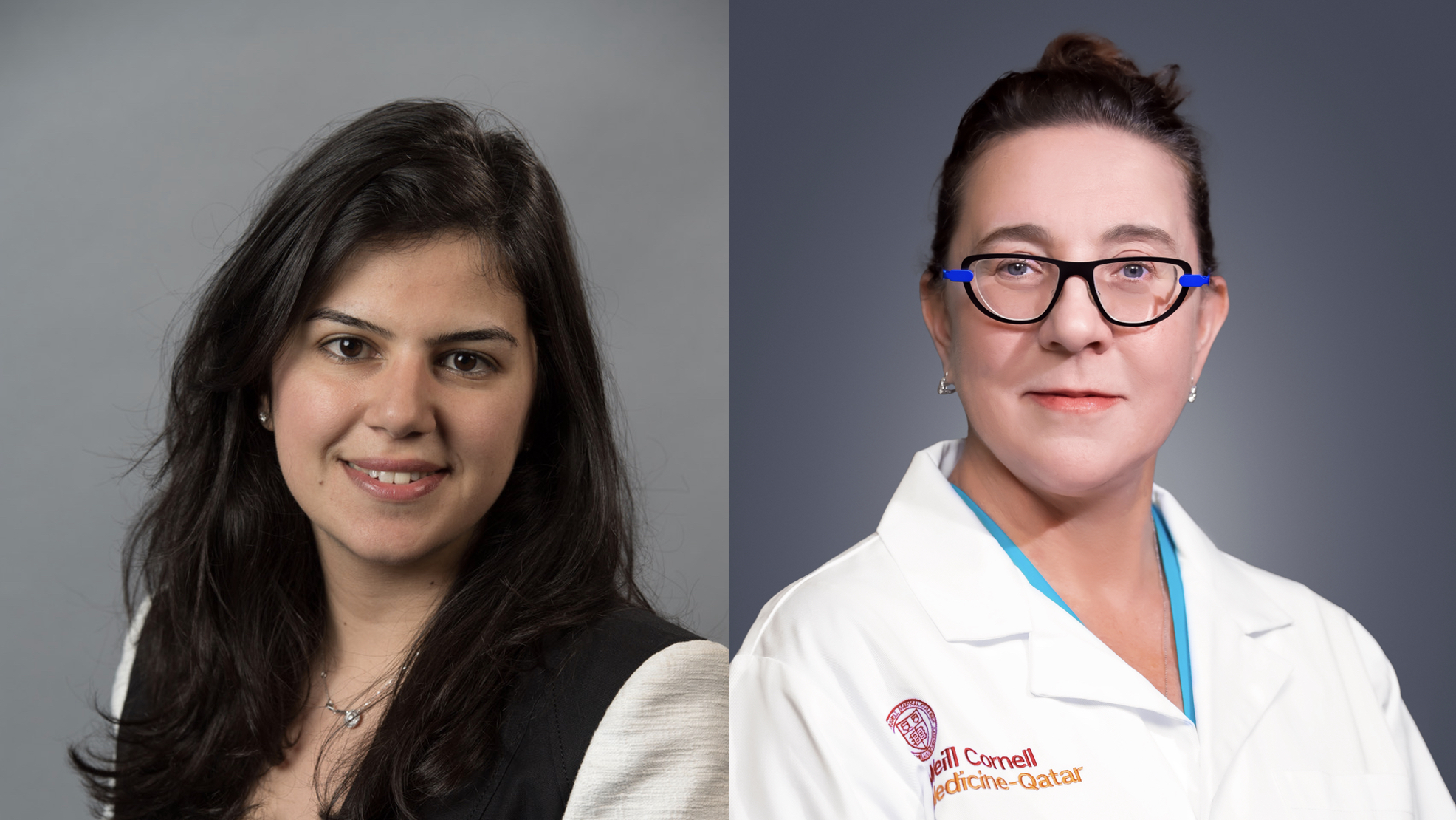Thyroid health and polycystic ovary syndrome discussed at WCM-Q Grand Rounds
 WCM-Q alumnus Dr. Tania Jaber, now a consultant endocrinologist at HMC (left) and Dr. Caitlin Huckell, co-director of the obstetrics and gynecology clerkship at WCM-Q.
WCM-Q alumnus Dr. Tania Jaber, now a consultant endocrinologist at HMC (left) and Dr. Caitlin Huckell, co-director of the obstetrics and gynecology clerkship at WCM-Q.
Two physicians with expertise in polycystic ovary syndrome and the growth of nodules on the thyroid gland gave lectures in the latest instalments of Weill Cornell Medicine-Qatar’s (WCM-Q) Grand Rounds series.
WCM-Q alumnus Dr. Tania Jaber, now a consultant endocrinologist at Hamad Medical Corporation, spoke about thyroid nodules, which are abnormal growths in the thyroid gland, located at the front of the neck. Thyroid nodules are relatively common and in the majority of cases are benign (noncancerous), explained Dr. Jaber. Nonetheless, anyone who notices a new growth or unusual lump in the neck (or any other part of the body) should always see a doctor to have the issue investigated professionally, she said. Dr. Jaber, who also holds the position of assistant professor of clinical medicine at WCM-Q, then described the diagnostic approach followed by physicians when investigating suspected thyroid nodules. Her lecture, titled ‘Thyroid Nodules: Which, When, What, and Then?’ explained the how to use ultrasound imaging to determine when to order a biopsy, and how to interpret thyroid cytology, which is the study of thyroid cells under a microscope, usually to discover whether the growth is malignant or not.
Dr. Jaber, who graduated from WCM-Q in 2011, said: “The most recent data from the United States for 2022 shows the incidence of thyroid cancer has been increasing over the past couple of decades but that we are finally starting to see the numbers plateau. However, what is interesting is that the mortality of thyroid has thankfully and fortunately remained stable and remained low. So, although we are diagnosing more thyroid cancer, there has not been an increase in mortality in absolute terms.”
In a separate lecture, Dr. Caitlin Huckell, co-director of the obstetrics and gynecology clerkship at WCM-Q, gave a definition of polycystic ovary syndrome (PCOS) and described the scope of the condition, which is the most common endocrine abnormality in women of reproductive age, affecting around one in ten. Dr. Huckell also gave a comparison of the variable ways polycystic ovary syndrome (PCOS) can present throughout a woman's life, explained how to appraise different treatment modalities for PCOS management, and discussed patient outcomes when PCOS is not treated.
Both lectures were delivered as live webinars and were accredited locally by the Ministry of Public Health’s Department of Healthcare Professions Accreditation Section and internationally by the Accreditation Council for Continuing Medical Education (ACCME).